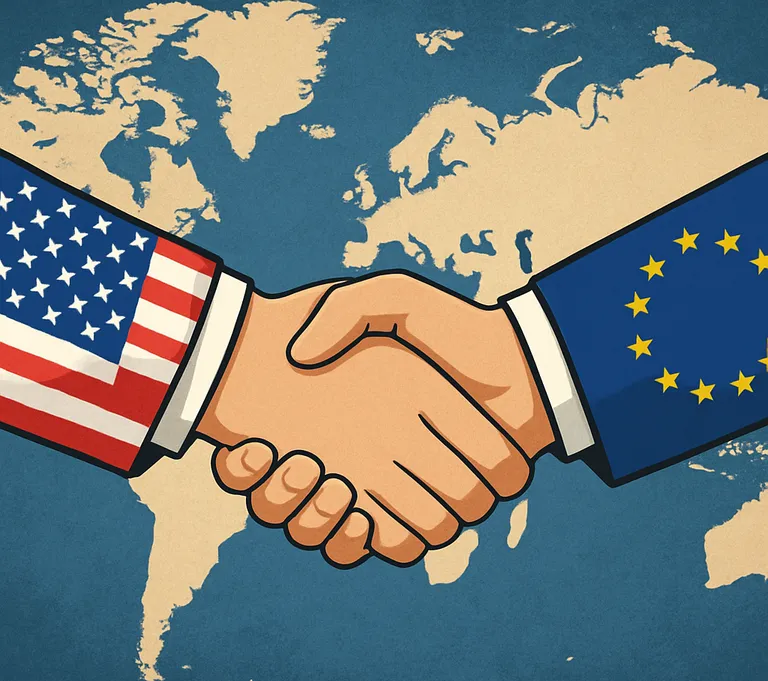Billions are at stake—but so are politics, public health, and Europe’s economic future.
As the United States and the European Union inch closer to finalizing a major trade agreement, reactions across Europe have been mixed—ranging from “cautious optimism” to outright alarm. The pact could redefine one of the world’s largest trading relationships, but critics argue it may do more harm than good, especially for European industries and citizens.
“This is a dark day,” said France’s prime minister, signaling stark opposition to the deal’s current form.
💸 What’s in the Deal?
While many of the specifics remain undecided, early drafts indicate that:
- Some European goods may be exempt from the newly reimposed 15% tariffs
- Other sectors, like pharmaceuticals, could take a direct hit
- The agreement covers nearly $2 trillion in trade between the U.S. and the E.U.
Affected sectors include:
- Automotive and agriculture
- High-end manufacturing
- Drugmakers that manufacture products like Botox and Ozempic in Europe
💊 The Pharma Fallout
One of the most contentious aspects of the deal is its potential impact on pharmaceuticals:
- European drugmakers may lose billions in U.S. market access
- American consumers could face higher drug prices and insurance premiums
- Disruptions to the supply chain of popular medications are possible
This has sparked backlash from both public health advocates and insurance providers.
🇪🇺 European Leaders Respond
The response across the European Union has been fragmented:
- 🇩🇪 Germany’s chancellor offered cautious support, citing the need to maintain strong ties with the U.S.
- 🇫🇷 France’s prime minister labeled it a blow to European sovereignty
- 🇮🇹 Italy and Spain have remained largely neutral but are watching closely
Many leaders view the deal as a strategic maneuver to keep Trump diplomatically engaged—particularly in matters like NATO, Ukraine, and China.
🌍 Bigger Than Trade
This deal isn’t just about goods and services. It’s about:
- Political alignment ahead of global elections
- The balance of power within the West
- Whether Europe is negotiating from a position of strength—or survival
“This agreement may not help Europe’s economy, but it might help preserve its geopolitical leverage,” wrote journalist Jim Tankersley.
📊 The Unanswered Questions
- What products will ultimately be exempt from tariffs?
- Will this increase costs for American households?
- Could Europe face long-term competitiveness issues?
With many details still under negotiation, the final impact is unclear—but the stakes couldn’t be higher.
🧭 Final Thought
This trade deal could be remembered as a strategic win—or a missed opportunity. It all depends on which side of the border you’re standing on.
By ✍️ Yorlinda Ramìrez- MicuPost Team
Sources:



